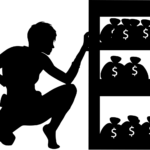The game isn’t very fair when the players are mismatched.
Though bankruptcy court is hardly a game, it’s been unfair when it comes to attorneys fees for the winning party.
California law provides that when a contract allows one party their fees if they prevail, the other party got their fees if they won. So, even if the contract only provided that you pay my fees if I have to sue you to collect, the statute made the right to fees reciprocal.
Only, bankruptcy courts have for decades held that the California statute didn’t control if the issue involved bankruptcy.
And then came Penrod in the 9th Circuit.
The firm of bankruptcy icon Ken Klee argued for the consumer that the fight between the car lender and the debtor in the bankruptcy court was “on the contract” and covered by the agreement. And the 9th Circuit agreed.
A bankruptcy fight over $7000 in negative equity in a Ford ended up with an attorneys fees award for the car buyer of $245,000.
Going forward, when debtors win in fights with creditors in bankruptcy court, they, too, will get the benefit of the contract they made with the creditor.
Chapter 13 Confirmation Fight Covered
The case that lead to a ruling about attorneys fees started out as an objection to confirmation of the Chapter 13 plan.
Prior to filing bankruptcy in 2007, Marlene Penrod had traded in a car that was worth less than she owed on it for a new Ford Taurus. The new loan included not only the purchase price of the new wheels but the unpaid balance of her trade in.
When she filed Chapter 13, she proposed to pay in full that part of the new car loan that reflected the purchase price of the new car, but not the part of the loan that payed off her trade in.
That difference, in bankruptcy lingo, was the “negative equity” in the trade in.
The car lender objected to confirmation of the plan, contending that the entire loan taken when the debtor bought the new car was a “purchase money” loan. Therefore, said the lender, it was protected from cramdown by the”hanging paragraph” added to 1325 by BAPCPA, the mislabeled bankruptcy reform act of 2005.
Several rounds of appeals later, the 9th Circuit held that the “negative equity” portion of the loan was not “purchase money” and therefore, the debtor could confirm a Chapter 13 plan that paid that part of the loan pennies on the dollar.
Who Pays For Debtor’s Win
Winning wasn’t cheap for Marlene. By the time she got a ruling in her favor from the 9th Circuit in 2011, and beat back the lender’s petition to the Supreme Court, her attorneys fees were $245,000.
Her loan agreement with Americredit said:
“You will pay our reasonable costs to collect what you owe, including attorney fees, court costs, collection agency fees, and fees paid for other reasonable collection efforts.”
And California’s Civil Code 1717 says:
In any action on a contract, where the contract specifically provides that attorney’s fees and costs, which are incurred to enforce that contract, shall be awarded either to one of the parties or to the prevailing party, then the party who is determined to be the party prevailing on the contract, whether he or she is the party specified in the contract or not, shall be entitled to reasonable attorney’s fees in addition to other costs.
But, said each court considering her request for an award of her fees, the confirmation fight over treatment in bankruptcy of the loan wasn’t an action “to enforce that contract.” You won, Marlene, but you pay for the victory out of your pocket.
Not so, held the 9th Circuit. The Supreme Court’s decision in Traveler’s held that nothing in the Bankruptcy Code expressly disallows claims for attorney’s fees simply because the fees are incurred litigating questions of federal bankruptcy law.
Under the language of the attorneys fees provision in the contract, Americredit would have been entitled to its fees had it won on the issue of plan confirmation. Accordingly, when the bankrupt borrower prevails, that borrower gets an award of attorneys fees.
Attorneys Fees For Winner, Period
The implications of this second Penrod decision are substantial. It becomes possible for the debtor to challenge creditor actions in the bankruptcy forum and recover the cost of the challenge, if they prevail.
I see it most important in bankruptcy litigation about the amount of mortgage arrearage claims and in relief from stay actions.
Any number of times, I’ve defeated motions for relief from stay, where the lender’s declaration about my client’s alleged defaults were simply untrue. But because we were in bankruptcy court, fighting over bankruptcy’s automatic stay, my client had to pay the cost of the fight.
To benefit from the newest Penrod holding, debtor’s counsel may need to get a determination from the court that the debtor is the prevailing party. But the possibility of such may make it possible to negotiate payment of the debtor’s fees without the necessity of trial.
The fruits of victory are now available to both players.






